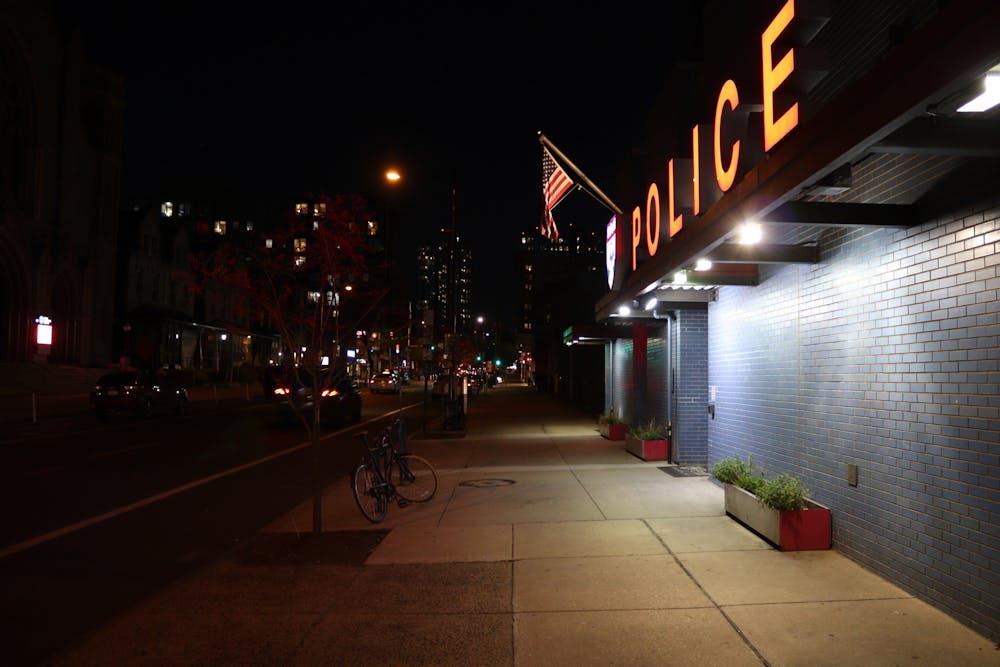
For many women, living alone in Philadelphia comes with a kind of “starter pack” that’s as practical as it is unnerving: an oversized jacket to avoid unwanted attention, location sharing with friends enabled on phones, eyes constantly swiveling for any sign of danger, and, occasionally, a can of pepper spray tucked into a pocket. It’s not something we discuss openly, but it’s a reality many of us quietly accept. We tell ourselves this is just the way things are.
Last week, my friend was assaulted in broad daylight near one of our favorite on-campus restaurants. It was a sudden, terrifying reminder that all the precautions we painstakingly take are just that: precautions. They can never guarantee our safety, and the systems meant to protect us often fall short.
We did what we were supposed to do: we called Penn Police. But from the moment they arrived, there was a palpable sense that this would not end the way we had hoped. Identifying the perpetrator together behind the tinted windows of a police car felt distant and procedural. Sorting through CCTV footage at police headquarters left us unsure of what was supposed to happen next. Every step lacked urgency and clarity, with no promise of justice in sight.
We later learned that the man who attacked my friend was known to the police, with a criminal record dating back to 2018. In fact, he had been arrested just two weeks prior for another assault but had already been released due to gaps in the legal system. The detective told my friend matter-of-factly that despite her report, the perpetrator would likely be released again within 72 hours. Even if charges were pressed and a court date was set, there was no way to guarantee Penn Police could find the perpetrator again. By the time the case — if she chose to pursue it — was settled, she may well have already graduated.
Penn Police’s response to my friend’s assault wasn’t dismissive out of malice but out of necessity — as if they knew that there are limits to the system they operate in. “This is Philadelphia!” they sighed as they mentioned being understaffed and spread thin across a campus and city full of constant demands. This incident has sparked a lot of discussion among my friends about the adequacy of our University’s response to such emergencies. Many of us feel let down, not just by the immediate handling of the situation but by the broader systemic issues that allow such a perpetrator to be a recurring threat with minimal consequences. We're left wrestling with the frustration of knowing that this could happen again to any one of us, and that our recourse might be just as limited. I felt, and still feel, very helpless and very alone.
This experience also made me realize how little most of us know about navigating the legal system. How many of us have ever thought about how to press charges, what steps to take after an incident like this, or what legal rights we have when things go wrong? Most of us don’t think about running into situations where we need to navigate the legal system or deal with law enforcement. For many, calling the police is our first, only, and final resort. I’ve realized how ill-equipped many of us are to deal with the aftermath of an attack. We have no roadmap for what to do next — no real understanding of how the legal process works or what our rights are.
But where does that leave us? I wish I could offer an actionable solution, but I can’t. I can think of steps that might make things better — more resources for law enforcement, better legal education for students, more support for victims of crime — but none of these are true solutions. Because this isn’t just the fault of Penn Police or our own for not knowing enough about the legal system. I don’t even know who to be mad at.
This experience has left me shaken, not just because of what happened, but because of what it revealed about the system we rely on. We deserve better than this cycle of fear and disillusionment. And while I can’t offer a perfect solution, I do know that we need to start demanding more from the institutions designed to keep us safe. For example, research from the Brookings Institution and the Urban Institute’s Justice Policy Center stresses the need for community engagement to improve trust in the justice system. Moving forward, we should advocate for more transparent conversations about what the police can and cannot do. We also need to push for systemic reforms that will enable law enforcement to better serve the community. Whether it’s addressing understaffing, improving legal awareness among students, or providing more resources to ensure that cases like this don’t slip through the cracks, there are real steps that can and should be taken. Until that happens, I will not feel truly safe on this campus. And I know I am not alone.
SOPHIA ZHANG is a Wharton junior studying finance from Hong Kong. Her email address is sophiazh@wharton.upenn.edu.
The Daily Pennsylvanian is an independent, student-run newspaper. Please consider making a donation to support the coverage that shapes the University. Your generosity ensures a future of strong journalism at Penn.
Donate






